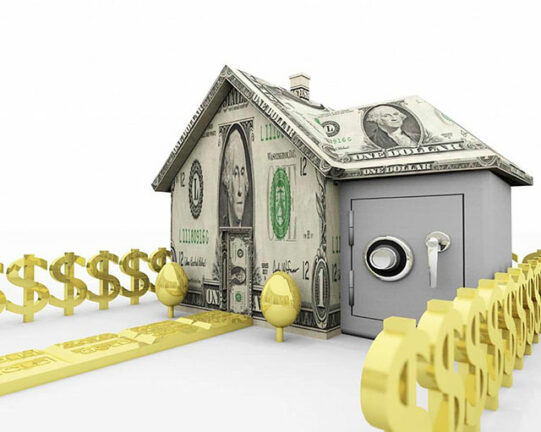Study finds missed home equity payments are a sign of trouble to come.
Each week, Consolidated Credit searches for financial research that can help you deal with your debt and budget. This week…

The interesting study
Home Equity Lines of Credit (HELOCs) are a financial tool available to homeowners, where they are able to borrow against the equity built up in a home. In a typical HELOC, payments start low and only cover interest charges. However, after a set period of time (usually 10 years) payments increase to cover interest plus principal.
The Wall Street Journal recently released an investigation into missed HELOC payments and what it means for a borrower’s overall financial outlook.
The big result
The study looked at HELOCs that ballooned between December 2014 and March 2015. Ballooning refers to when an interest-only payment changes to being covering interest plus principal. Looking at borrowers whose payments jumped by at least 20%…
Almost 2 out of every 100 borrowers (1.9%) were more than 90 days behind on HELOC payments by the end of the year.
The fascinating details
What’s more concerning is that those who fell behind with HELOC payments also started to fall behind on other payments as well:
- 40% of delinquent HELOC borrowers also feel behind by at least 3 months on their primary mortgage
- 5% fell behind on credit card payments
All of those numbers are up from previous years. Previously, only 0.1% of HELOC borrowers fell behind in their balloon year. And of those, only 12.5% also fell behind on a mortgage and 18.5% fell behind on credit cards.
What this means
“HELOCs that are ballooning now were for debts taken out prior to the Great Recession,” explains Maria Gaitan, Housing Director of Consolidated Credit. “The loans evaluated in the study would generally be from December 2004 to March 2005. With that in mind, this increase in HELOC delinquencies may be the lingering effects of over-borrowing prior to the collapse. However, such a sharp increase in the number of delinquencies happening now is a cause for concern.”
Prior to the recession, homeowners were possibly a little too comfortable borrowing against the value of their homes. Basically, equity in many key metropolitan areas skyrocketed just prior to the collapse and so homeowners effectively borrowed against bubble equity. When property values plummeted, many households were left in a financial lurch.
What you can do
If you already have a HELOC that hasn’t ballooned yet…
“If you’re still paying interest only on a HELOC taken out before the Great Recession, start planning now so you can get your budget ready for the balloon,” Gaitan encourages. “As the study shows, payments often increase by 20% or more, which can spell big problems for your budget if you’re not ready.”
Gaitan says the best thing you can do to offset that increase is to pay off credit card debt prior to the reset date. The more credit card debt you pay off, the lower those bills will be, giving you more cash flow to cover HELOC payments when they start to include principal.
“Cutting out one or two credit card obligations may give your budget the boost it needs to handle higher HELOC payments. Otherwise, you’re at high risk to end up juggling bills and facing financial distress where you can start to miss payments.”
If you’re considering a HELOC…
“Borrowing against the equity in your home can be tricky and risky,” Gaitan continues. “It’s difficult because real estate bubbles and market fluctuations have significant effects on equity. It’s also a financial risk because HELOCs are secured debt. In other words, if you default you could be facing foreclosure.”
Gaitan recommends that other lending and financing options should be explored thoroughly before you consider borrowing against your home. If a HELOC seems like the best option, make sure to borrow responsibly and don’t just take out a bigger line of credit because it’s available during a real estate bubble.
If you have questions about your home equity and how HELOCs work, call 1-800-435-2261 to speak with a HUD-certified housing counselor free of charge.